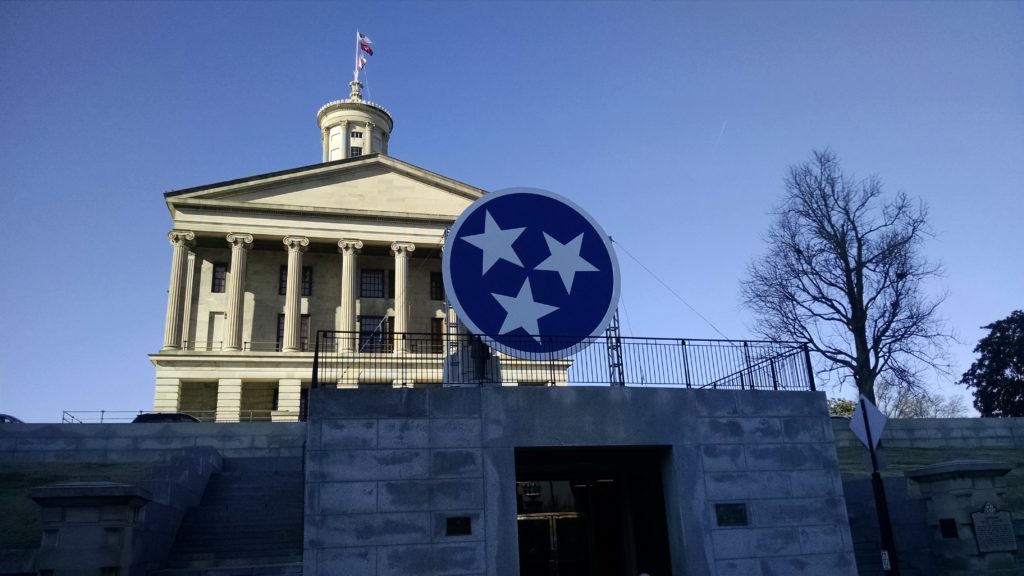
You may have heard that Tennessee’s gas tax rose by 4 cents a gallon over the weekend. But that’s only one of dozens of laws that went into effect.
July 1 is traditionally the date most new state laws are rolled out. A few reasons factor into why. July 1 usually comes a few weeks after the Tennessee General Assembly has adjourned, giving legislative clerks and the governor’s office time to review the measures and formalize the final draft. That date is also the start of the state’s fiscal year.
Here are few laws that went into effect July 1 — some of which did not get widespread attention:
“In God We Trust” on license plates
Tennesseans can choose license plates with the motto “In God We Trust” printed on them, for no additional cost.
Mandatory treatment for drug-addicted doctors and nurses
Health care systems are required to report personnel who test positive for drugs. The Department of Health can suspend their licenses or compel them to go into treatment.
Tougher sentences for undocumented immigrants
Judges can order longer sentences for immigrants convicted of crimes while in the country illegally.
Enhanced penalties for vandalizing a place of worship or burial
Desecrating a house of worship or burial ground is now a class E felony, punishable by one to six years in prison and a $3,000 fine.
“Viability” tests for abortions after 20 weeks
Doctors must test for “viability” before performing an abortion if they believe it’s been 20 weeks or more since the start of the mother’s most recent menstrual period.
Move Over Law
Drivers now must move over a lane or slow down if they spot any vehicle on the shoulder. Previous law required drivers to move over for emergency vehicles.
Mandatory armed intruder drills in schools
Schools are now required to hold an armed intruder drill at least once a year.
Retirement benefits for police dogs
Dogs retired from the Tennessee Highway Patrol can receive up to $85 per month to pay for veterinary services.
Leniency for minors caught sexting
Juvenile courts can charge minors with an “unruly act” — rather than child pornography — if they possess or distribute sexually explicit images of another minor.
Cities can be sued for banning guns
Individuals and groups can sue local governments if they ban guns in public facilities without also providing security screening.


